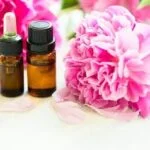Are you ready to dive into the enchanting world of aromatherapy and discover the incredible effects that scents can have on our well-being? Aromatherapy, a practice that utilizes the power of essential oils and their aromas, has fascinated cultures around the world for centuries. From promoting relaxation and reducing stress to improving sleep quality and enhancing mental clarity, the benefits of aromatherapy are vast.
In this article, we will explore the captivating world of aromatherapy effects of scents, delving into its historical significance, scientific explanations, therapeutic advantages, and practical applications. Get ready to unlock the magic of scents and embark on a journey towards holistic well-being.
Throughout history, various cultures have recognized and valued the power of scents in promoting health and harmony within the body and mind. Aromatherapy traces its roots back thousands of years when ancient civilizations such as Egypt, India, China, and Greece incorporated botanical essences into their rituals and medical practices.
These ancient traditions viewed fragrant plants as gifts from nature with potent healing properties. Today, modern science is discovering what these ancient societies intuitively knew – that scents have a profound impact on our emotions, physical sensations, and overall well-being.
At its core, aromatherapy harnesses the power of essential oils derived from aromatic plants to create a therapeutic environment that supports balance and relaxation. But how exactly do these scents work their magic? The science behind aromatherapy lies in our sense of smell – one of our most powerful senses deeply connected to our emotions.
When we inhale an aroma from an essential oil molecule, it travels through our nasal passages directly to the olfactory bulb in our brain. This triggers a cascade of physiological responses that affect everything from heart rate to hormone production. By understanding this connection between scent and emotion at a molecular level, we can effectively utilize aromatherapy to support different aspects of our well-being.
In the following sections, we will delve deeper into the science of aromatherapy and explore its incredible benefits. From stress relief and improved sleep quality to mental clarity and enhanced energy levels, aromatherapy offers a wide range of therapeutic advantages.
Additionally, we will discover the various essential oils commonly used in aromatherapy, how to choose scents for specific needs, and the different techniques and methods for optimal results. But before we fully immerse ourselves in the world of aromatherapy applications, let’s first uncover the fascinating history and cultural significance behind these powerful effects of scents.
Understanding the Power of Aromatherapy
How Scents Interact with Our Sense of Smell
Aromatherapy operates on the principle that scents have a profound impact on our sense of smell. When we inhale a scent, it travels through the nasal passages to the olfactory receptors in our noses. These receptors then send signals to the limbic system, which is responsible for regulating emotions, memories, and behaviors.
Research has shown that different scents can trigger various emotional and physiological responses. For example, the scent of lavender has been found to promote relaxation and calmness, while citrus scents like lemon and orange can uplift mood and increase energy levels. By understanding how scents interact with our sense of smell, we can harness their power to improve our well-being.
The Connection Between Scents and Our Brain’s Response
The brain’s response to scents in aromatherapy is complex and fascinating. When we inhale certain scents, they activate the release of neurotransmitters like serotonin and endorphins, which are responsible for mood regulation and pain relief. This explains why aromatherapy has been widely used as a natural remedy for stress reduction and relaxation.
Additionally, certain scents can stimulate the production of specific brain chemicals that help alleviate symptoms of anxiety or depression. For instance, the scent of chamomile has been shown to increase levels of gamma-aminobutyric acid (GABA), which promotes relaxation and reduces anxiety.
Furthermore, research suggests that our brains form powerful associations between scents and memories or experiences. This phenomenon is why certain smells may evoke nostalgic feelings or transport us back to specific moments in time. Understanding these connections allows us to use aromatherapy strategically for emotional healing or promoting positive mental states.
As scientists continue to study the science behind scents in aromatherapy, more insights will be gained into how different smells affect various parts of the brain. This expanding knowledge will pave the way for further advancements in harnessing aromatherapy’s potential as a therapeutic practice.
The Incredible Benefits of Aromatherapy
Aromatherapy is not just about creating pleasing scents; it also offers incredible benefits for our health and well-being. The therapeutic effects of aromatherapy extend far beyond simply creating a pleasant atmosphere. In this section, we will delve into the various benefits that aromatherapy has to offer, ranging from stress relief to improved sleep quality.
One of the key benefits of aromatherapy is its ability to promote relaxation and reduce stress. Certain aromas, such as lavender and chamomile, have calming properties that can help soothe the mind and body. By inhaling these scents or using them in massage oils or bath products, you can create an environment conducive to relaxation and stress relief.
In addition to stress reduction, aromatherapy has also been found to improve sleep quality. Scents like lavender and jasmine are known for their sedative effects, helping to calm the mind and prepare the body for restful sleep. By incorporating these scents into your bedtime routine, such as using a lavender-scented pillow spray or diffusing jasmine oil in your bedroom, you can enhance the quality of your sleep and wake up feeling refreshed.
Another remarkable benefit of aromatherapy is its potential to boost energy levels and enhance overall well-being. Stimulating scents like citrus oils or peppermint can help increase alertness, improve concentration, and provide an energy boost when needed. These uplifting scents can be inhaled directly from a bottle or diffused throughout your workspace to keep you focused and energized throughout the day.
The benefits of aromatherapy go beyond just physical well-being; they also have a positive impact on mental clarity and emotional balance. Aromas like rosemary and lemon have been shown to enhance cognitive function, memory retention, and mental focus. Additionally, certain essential oils have mood-enhancing properties that can help uplift your spirits and promote a positive mindset.
Exploring Essential Oils
An In-Depth Look at Lavender Oil
One of the most popular and versatile essential oils in aromatherapy is lavender oil. Known for its calming and soothing properties, lavender oil is often used to promote relaxation and improve sleep quality. Its subtle floral scent has been found to reduce anxiety and stress levels, making it a favorite choice for those seeking mental and emotional relief.
When applied to the skin, lavender oil can also provide relief from minor burns, insect bites, and skin irritations. Its anti-inflammatory properties help to reduce redness and swelling, while its antimicrobial effects aid in preventing infection. Additionally, lavender oil has been shown to have analgesic properties that may alleviate pain when used topically.
To incorporate lavender oil into your aromatherapy routine, you can add a few drops to a diffuser or dilute it with a carrier oil for massage. Alternatively, you can create a relaxing bath by adding several drops of lavender oil to warm water. It’s important to note that while lavender oil is generally safe for most individuals, it should be avoided by those with allergies or sensitivities to the plant.
The Cooling Effects of Peppermint Oil
Peppermint oil is another essential oil widely used in aromatherapy for its refreshing and invigorating qualities. The cooling sensation provided by peppermint oil makes it an excellent choice for relieving headaches or muscle tension. When applied topically, it can help reduce inflammation and promote blood circulation.
In addition to its physical benefits, peppermint oil has also been found to enhance mental clarity and focus. Its stimulating aroma stimulates the mind and improves cognitive performance, making it ideal for times when you need an extra boost of concentration or productivity.
To enjoy the benefits of peppermint oil in aromatherapy, you can diffuse it throughout your home using a diffuser or inhale directly from the bottle for quick relief. Topical application can be achieved by diluting a few drops of peppermint oil with a carrier oil and massaging it onto the temples or other areas of tension.
The Respiratory Benefits of Eucalyptus Oil
Eucalyptus oil is commonly used in aromatherapy to support respiratory health and clear congestion. Its strong, minty scent helps to open up airways and relieve symptoms of common respiratory conditions such as colds, coughs, and sinusitis.
When diffused or inhaled, eucalyptus oil can act as an expectorant, helping to loosen phlegm and mucus in the respiratory tract. This makes it easier to expel and promotes clearer breathing. The anti-inflammatory properties of eucalyptus oil also contribute to its effectiveness in supporting respiratory health.
To experience the respiratory benefits of eucalyptus oil, you can add a few drops to hot water and inhale the steam or use it in a diffuser. It can also be blended with other essential oils like lavender or peppermint for added benefits. However, it’s important to use eucalyptus oil with caution as excessive usage may cause skin irritation or allergic reactions in some individuals.
By exploring these key essential oils used in aromatherapy, you can begin to understand the diverse range of scents available that offer unique therapeutic benefits. Whether you’re seeking relaxation, mental clarity, or improved respiratory health, incorporating essential oils into your aromatherapy practice allows for a personalized and transformative experience.
Choosing the Right Scents for Different Needs
Aromatherapy offers a vast array of scents that can be tailored to address specific needs and provide a personalized experience. When it comes to choosing the right scents for different purposes, it’s important to understand the effects and properties of each essential oil. By selecting the appropriate scents, individuals can enhance their aromatherapy experience and maximize its benefits.
For relaxation and stress relief, lavender is an excellent choice. Known for its calming properties, lavender can help promote a sense of tranquility and ease anxiety. It is often used in diffusers or added to bathwater for a soothing and relaxing experience.
If you’re looking to boost energy levels and increase focus, citrus scents such as lemon or orange are great options. These invigorating scents have been shown to stimulate the senses and promote alertness. They can be used in diffusers or applied topically when diluted with a carrier oil.
To uplift mood and enhance positivity, consider using floral scents such as rose or jasmine. These aromas are known for their antidepressant properties and can help create a sense of joy and well-being. Floral essential oils can be added to body oils or used in room sprays for a lovely scent throughout the day.
When it comes to supporting better sleep quality, chamomile or bergamot can work wonders. Chamomile is renowned for its relaxing properties, while bergamot has sedative effects that aid in achieving restful sleep. These oils can be used in massage oils or diffused before bedtime.
It’s worth noting that everyone’s preferences may vary when it comes to scent choices, so experimentation is key. Some people find that certain scents resonate more with them personally or evoke specific memories or emotions. It’s important to listen to your own intuition when selecting essential oils for your aromatherapy practice.
By customizing your aromatherapy experience with carefully chosen scents, you can create a personalized and effective practice that caters to your specific needs. Whether it’s relaxation, focus, mood enhancement, or sleep improvement, there is a wide range of essential oils available to support you on your aromatherapy journey. So go ahead and explore the world of scents to discover the perfect aromatherapy blend for you.
Aromatherapy in Practice
Aromatherapy is a versatile practice that can be incorporated into daily routines in various ways. To ensure optimal results and maximum benefit from aromatherapy, it is essential to understand different techniques and methods of application. In this section, we will explore some popular techniques and provide step-by-step instructions on how to use them effectively.
- Diffusers: Diffusers are one of the most common methods of enjoying the benefits of aromatherapy. These devices disperse essential oil molecules into the air, allowing you to inhale their therapeutic properties.
There are several types of diffusers available, including ultrasonic diffusers, nebulizers, and heat diffusers. To use a diffuser, simply add a few drops of your chosen essential oil or blend to the water reservoir, follow the manufacturer’s instructions for settings and operation, and enjoy the rejuvenating fragrance filling your living space. - Massage oils: Aromatherapy massage is a popular technique that combines the healing power of touch with the therapeutic effects of essential oils. To create your own massage oil blend, dilute 10-15 drops of essential oil in 1 ounce (30 mL) of carrier oil such as jojoba or sweet almond oil.
Gently massage the mixture onto your skin using slow, rhythmic movements. Not only does this technique promote better absorption through your skin, but it also helps relax tense muscles and relieves stress. - Inhalation: Inhalation is a simple yet effective way to experience the immediate benefits of aromatherapy. You can either inhale directly from the bottle or create a steam inhalation by adding several drops of essential oil to a bowl filled with hot water.
Place a towel over your head to create a tent-like enclosure that traps the steam, lean over the bowl at a safe distance to avoid burns, and inhale deeply for a few minutes. This technique can clear your mind, ease respiratory congestion, and provide an instant mood boost. - Baths: Aromatherapy baths offer the perfect opportunity to relax and unwind while indulging in the benefits of essential oils. Start by filling your bathtub with warm water, then add 5-10 drops of your chosen essential oil to a carrier oil or a tablespoon of full-fat milk (which helps disperse the oils in the water).
Swirl the water gently to disperse the oil before immersing yourself in the soothing bath for at least 20 minutes. The combination of warm water and aromatic scents can alleviate muscle tension, improve circulation, and promote overall relaxation.
By incorporating these various techniques into your aromatherapy practice, you can enhance your well-being and harness the transformative power of scents more effectively. Remember to always use high-quality essential oils, follow recommended dilution guidelines, and consider any individual sensitivities or contraindications when using aromatherapy methods.
| Technique | Instructions |
|---|---|
| Diffusers | Add a few drops of essential oil to the diffuser’s water reservoir according to manufacturer instructions. |
| Massage oils | Dilute 10-15 drops of essential oil in 1 ounce (30 mL) of carrier oil. Gently massage onto skin. |
| Inhalation | Inhale directly from bottle or create steam inhalation by adding drops of essential oil to hot water and inhaling over a tent-like enclosure. |
| Baths | Add 5-10 drops of essential oil to warm bathwater and immerse for at least 20 minutes. |
Aromatherapy Safety Precautions
When it comes to enjoying the benefits of aromatherapy, it is important to prioritize safety and use scents responsibly. While aromatherapy can be a powerful and effective natural healing practice, it is crucial to understand potential side effects and contraindications in order to prevent any adverse reactions. By following some simple guidelines, you can safely incorporate aromatherapy into your daily routine.
- Dilution: Essential oils are concentrated plant extracts and should never be used undiluted on the skin. It is vital to dilute them with a carrier oil, such as almond oil or coconut oil, before applying topically. The typical recommended dilution ratio for adults is 2-3% (approximately 12-18 drops of essential oil per ounce of carrier oil).
- Patch Test: Before applying any essential oil blend to a larger area of your body, perform a patch test to check for sensitivity or allergic reactions. Apply a small amount of the diluted blend to a small area of skin (such as your inner forearm) and wait for 24 hours to see if there are any adverse reactions.
- Pregnancy and Children: Certain essential oils are not recommended for use during pregnancy or on children due to their potential effects on hormones or sensitive skin. It is crucial to consult with a healthcare professional or qualified aromatherapist before using essential oils during pregnancy or applying them on children.
- Quality Assurance: Choose high-quality essential oils from reputable sources. Look for pure essential oils that have been properly tested and labeled with their botanical name, country of origin, and method of extraction.
- Photosensitivity: Some essential oils can increase the skin’s sensitivity to sunlight, leading to sunburn or pigmentation changes. To avoid this, it is recommended to avoid direct sunlight or tanning beds immediately after topical application of photosensitive oils like bergamot, lemon, grapefruit, and lime.
- Inhalation: When using essential oils for inhalation, it is important to avoid excessive or prolonged inhalation to prevent respiratory irritation. Use only a few drops in a diffuser or add a few drops to boiling water for steam inhalation. Always follow the manufacturer’s instructions for individual diffusers.
- Proper Storage: Essential oils should be stored in dark-colored glass bottles, away from direct sunlight, heat, and moisture. Keep them out of reach of children and pets to prevent accidental ingestion.
Remember, aromatherapy is a complementary therapy and not a substitute for medical advice or treatment. If you have any underlying health conditions or are taking medications, it is advisable to consult with your healthcare provider before incorporating aromatherapy into your routine.
By following these safety precautions and guidelines, you can confidently enjoy the benefits of aromatherapy while ensuring your well-being and safety. Aromatherapy has the potential to enhance our lives in numerous ways when used responsibly and with proper respect for its powerful effects of scents.
Beyond the Scent
Aromatherapy has long been celebrated for its ability to enhance mental and emotional well-being. Beyond simply providing a pleasant scent, aromatherapy engages with our mind and body in powerful ways. In this section, we will delve into the fascinating world of the mind-body connection in aromatherapy, exploring how scents can influence our mood, emotions, and overall mental well-being.
Research has shown that certain scents can have a profound impact on our emotions and mood. For example, lavender is often used for its calming properties, helping to reduce anxiety and promote relaxation. On the other hand, citrus scents like lemon or orange are known to energize and uplift the spirit. By incorporating these scents into our daily routines through essential oils or diffusers, we can tap into their therapeutic effects and create a more balanced mental state.
In addition to influencing emotions, aromatherapy also has the potential to impact our physical well-being through its effect on stress levels. Stress is a common issue faced by many individuals in today’s fast-paced world, and it can have negative effects on both our physical and mental health.
However, certain scents like chamomile or ylang-ylang have been found to help reduce stress levels and promote relaxation. By using these scents in aromatherapy practices such as massages or baths, we can effectively manage stress and improve overall well-being.
Overall, the mind-body connection in aromatherapy offers a holistic approach to wellness by integrating both psychological and physiological aspects of health. By harnessing the power of scents and their influence on our mind and body, we can enhance our overall well-being in a natural and gentle way. In the next section, we will discuss how aromatherapy can be combined with other holistic practices such as meditation or yoga to further amplify its benefits.
| Scents | Effects |
|---|---|
| Lavender | Calming and relaxation |
| Citrus (lemon, orange) | Energizing and uplifting |
| Chamomile, ylang-ylang | Stress reduction and relaxation |
Conclusion
In conclusion, the power of aromatherapy effects of scents is truly remarkable. Throughout this article, we have explored the science behind aromatherapy and its ability to impact our emotions, physical well-being, and overall sense of balance. From alleviating stress and improving sleep quality to boosting energy levels and promoting mental clarity, aromatherapy offers a wide range of therapeutic benefits.
One of the key takeaways from this discussion is the importance of selecting the right scents for different needs. By understanding the specific effects of essential oils such as lavender, peppermint, and eucalyptus, individuals can customize their aromatherapy experience and address their unique concerns. Whether it is relaxation after a long day or enhanced focus during work hours, choosing the appropriate scents can make all the difference in harnessing the true magic of aromatherapy.
Furthermore, incorporating aromatherapy into your daily life can be achieved through various application methods such as using diffusers, massage oils, inhalation techniques, or baths. By following proper instructions and taking safety precautions like proper usage and dosage guidelines, individuals can safely enjoy the full benefits that aromatherapy has to offer.
In light of these insights, we encourage readers to embrace aromatherapy in their daily routines. By harnessing the magic of scents and incorporating these practices into their lives, individuals can enhance their overall well-being and experience transformative effects on both their mind and body.
Aromatherapy is a powerful tool that has been utilized for centuries across different cultures for its healing properties – now it’s time to embrace it in our modern lives. So go ahead, explore the fascinating world of aromatherapy effects of scents and unlock its potential for a more balanced and vibrant life.
Frequently Asked Questions
What are the effects of scents?
Scents have various effects on individuals. They can evoke strong emotional and cognitive responses, often linked to past experiences or memories. Certain scents can create a calming or relaxing atmosphere, allowing individuals to feel more at ease and reduce anxiety.
Conversely, some scents can be invigorating and energizing, aiding in concentration and productivity. Scents also have the ability to stimulate appetite or suppress it, influencing our eating habits. Additionally, pleasant scents have been shown to improve mood and enhance overall well-being.
What are the psychological effects of scents?
The psychological effects of scents are significant and can greatly impact our emotions and behaviors. Certain scents have the power to uplift our mood and promote a sense of happiness or relaxation by triggering the release of feel-good neurotransmitters like serotonin. Aroma therapy has been used for centuries as a way to enhance mental health and relieve stress or anxiety symptoms.
For example, lavender scent has been found to have soothing properties that help reduce stress levels and improve sleep quality. Scents can also influence perception, cognition, and memory formation by activating specific brain regions associated with these processes.
What are the benefits of aroma scents?
Aroma scents offer numerous benefits that contribute to our overall well-being. One of the primary advantages is their ability to induce relaxation and reduce stress levels. Certain aromas like chamomile or jasmine can provide a calming effect on both the mind and body, helping individuals unwind after a long day. Aromatherapy is commonly used in spa treatments and meditation practices due to its soothing nature.
Furthermore, aroma scents can aid in improving sleep quality by creating a tranquil environment conducive for restful slumber. Pleasant smells can also enhance focus and concentration levels, which is especially beneficial for work or study environments where mental clarity is essential for optimal performance. Lastly, aroma scents can simply add an enjoyable sensory experience to our daily lives, evoking positive emotions and contributing to an overall sense of happiness

Are you looking for a natural way to improve your health and wellbeing?
If so, aromatherapy may be the answer for you.





